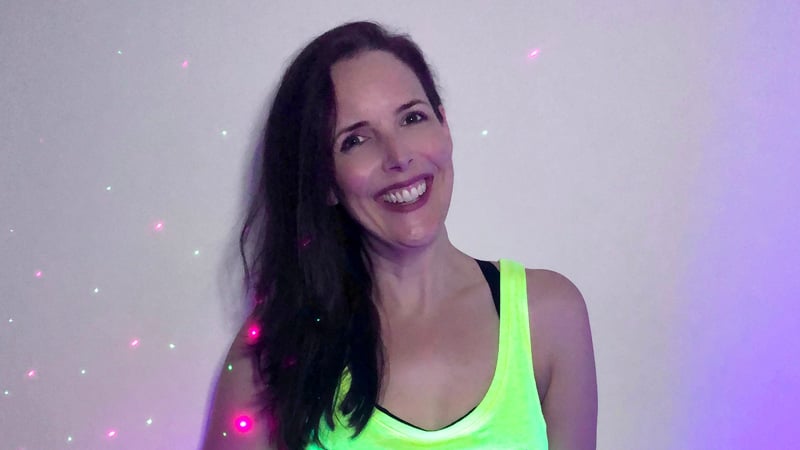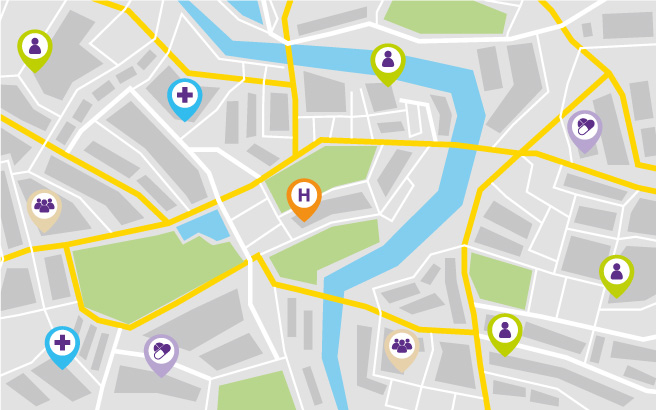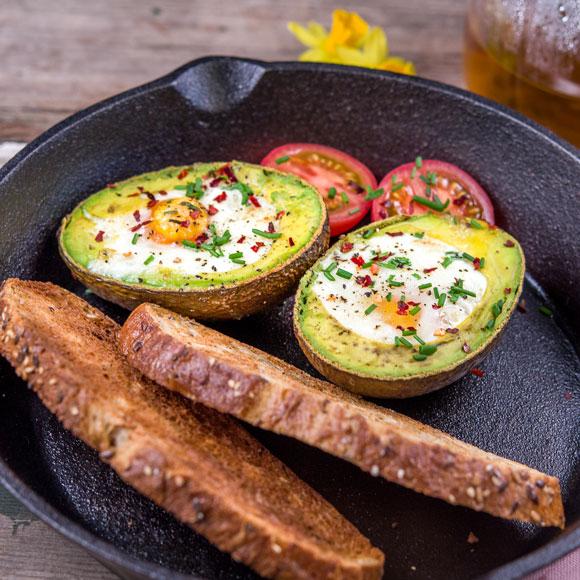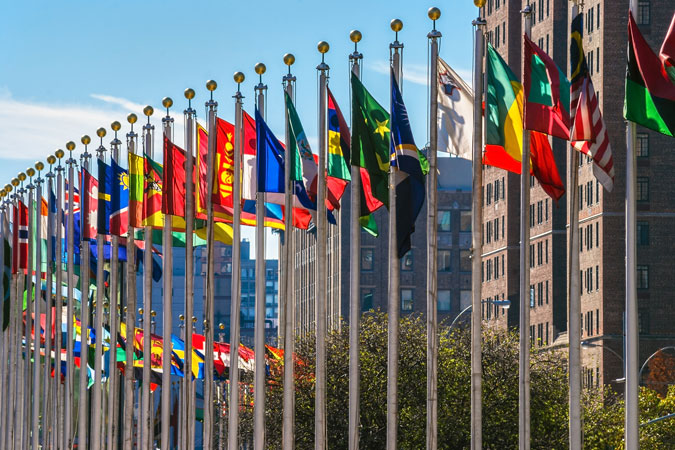When you were a child, what did you want to be when you grew up?
I was torn between wanting to be a large-animal veterinarian or a classical ballet dancer. It turns out I didn’t have the stomach for the first or the talent for the second.
Did you ever set fire to anything in science lessons at school?
No, I was generally very well-behaved at school except for talking too much!
Do you wear a lab coat?
No, I haven’t worn a lab coat since I was an undergraduate studying science at the University of Queensland.
How did you get into cancer research?
After graduating from my undergraduate degree, I started doing volunteer work at a cancer not-for-profit agency in Queensland. This organisation had just initiated a pilot randomised controlled trial of community-based melanoma screening, and I was recruited to work as a research assistant on that trial. That’s when I knew that epidemiology [the science of determining the causes of health and disease in populations] was the career I wanted to pursue.
Why are you interested in breast cancer research?
I doubt anyone hasn’t been affected by this disease in some way. My maternal grandmother was diagnosed with an aggressive form of breast cancer in 2006, but thanks to medical science she got another 5 good years before the cancer returned and she died in 2012.
Thank you from Brigid
World Cancer Research Fund have been a huge support in my career. You provided me with my first project-specific grant. Previously I got some fellowships, but WCRF funded the activate trial, which was a pilot randomised control trial of wearable technology to see whether that helps women with breast cancer to increase their activity. We had some really nice results from that trial and demonstrated it is helpful.
This year’s grant programme has awarded a record total of £5.1m in funding for its vital research into how diet, nutrition and physical activity can prevent cancer, as well as help people survive cancer.
The 19 successful research projects will be looking into a range of cancers and risk factors, including the impact of body weight on bladder cancer outcome, the role of maternal folate in childhood leukemia as well as investigating physical activity and dietary support for people living beyond a breast cancer diagnosis.
World Cancer Research Fund has partnered with Cancer Australia in co-funding 3 research projects based in Australia, which investigate the role of diet, nutrition and physical activity in primary cancer prevention and survivorship research.
The newly awarded grants – funded by the WCRF network’s UK and Netherlands affiliates, World Cancer Research Fund and Wereld Kanker Onderzoek Fonds – are:
- Associate Prof Tina Skinner, University of Queensland, Australia, £349,914: Rebuilding bone with exercise in multiple myeloma
- Prof Terence Dwyer, Murdoch Children’s Research Institute, Australia, £349,800: Body mass index in childhood and risk of pre-menopausal breast cancer
- Assistant Prof Jill Mckay, Northumbria University, UK, £346,625: The role of maternal folate in childhood leukaemia initiation; understanding the molecular mechanisms
- Dr Emma Allott, Queen’s University Belfast, UK, £346,394: Periprostatic adipose tissue and aggressive prostate cancer risk: a prospective study
- Dr Giorgia Zadra, Italian National Council of Research, Italy, £340,000: Integrating tissue-based spatial information to elucidate how obesity-induced tumour metabolites drive prostate cancer progression
- Assistant Prof Gennaro Napolitano, Telethon Institute of Genetics and Medicine, Italy, £326,500: Targeting metabolic vulnerabilities in pancreatic cancer
- Dr Pietro Ferrari, International Agency for Research on Cancer, France, £317,678: How do social inequality and sex impact the relationship between lifestyle and cancer (SILICA)?
- Prof Julie Redfern, University of Sydney, Australia, £299,827: Bridging the gap in physical activity and diet support for breast cancer survivors: a randomised controlled trial in primary care
- Dr Alina Vrieling, Radboud University Medical Center, Netherlands, £295,999: Vitamin D and bladder cancer: associations with tumour recurrence and quality of life
- Dr Mark Schmitt, University of Marburg, Germany, £295,380: Intestinal stem cell plasticity in western-style diet induced colon cancer development
- Associate Prof Harindra Jayasekara, Cancer Council Victoria, Australia, £294,582 (grant co-funded with Cancer Australia*): Establishing dietary and body size-related risk factors for oesophageal cancer to inform prevention: a pooled analysis of prospective studies
- Dr Joseph Rothwell, Centre for Research in Epidemiology and Population Health, INSERM, Institut Gustave Roussy, France, £289,767: Metabolic signatures of dietary exposures and their association with gastrointestinal cancers
- Prof Luc van Loon, Maastricht University, Netherlands, £209,304: The impact of dietary energy restriction versus exercise on prostate tumour and muscle tissue protein synthesis in vivo in prostate cancer patients
- Prof Steven Olde Damink, Maastricht University, Netherlands, £149,592: Body composition, nutritional status, and inflammatory status as host phenotypes to predict outcome in pancreatic cancer
- Dr Sita Vermeulen, Radboud University Medical Center, Netherlands, £88,754: Body size and non-muscle invasive bladder cancer outcome: what do the genes say?
- Dr Aravinda Guntupalli, University of Aberdeen, UK, £59,994: The feasibility and acceptability of conducting a randomised controlled trial to improve Body Composition and Quality of Life of stomach cancer patients after gastrectomy in India (EASE IN)
- Dr Ben Rattray, University of Canberra, Australia, £59,982 (grant co-funded with Cancer Australia*): Cognitive impairment in survivors of prostate cancer: combining cognitive and physical activity for a brain fog fix
- Prof Anthony Okely, University of Wollongong, Australia, £59,949 (grant co-funded with Cancer Australia*): Assessing physical activity, sedentary behaviour, and weight status in young children in low- and middle-income countries: The SUNRISE Fiji, SUNRISE Botswana, and SUNRISE Kenya Pilot Studies
American Institute for Cancer Research (AICR), £613,000
A single grant was awarded to AICR, our network affiliate, to support the funding of grants managed through our grant programme in the Americas and covering a variety of research projects.
*Cancer Australia was established by the Australian government in 2006 to benefit all Australians affected by cancer, as well as their families and carers. Cancer Australia aims to reduce the impact of cancer, address disparities and improve outcomes for people affected by cancer, by leading and coordinating national, evidence-based interventions across the continuum of care.











